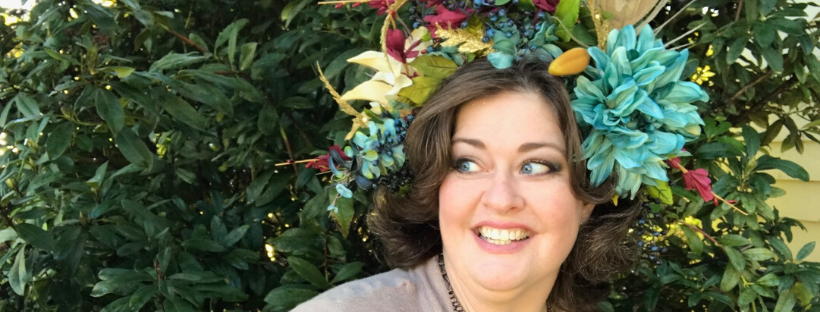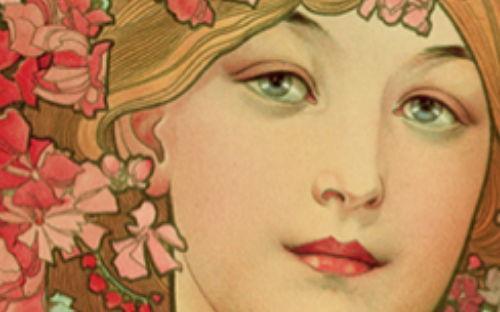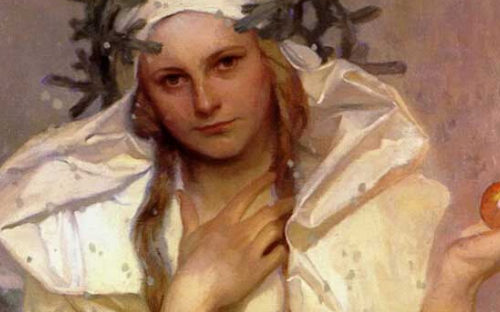
Folkmother: a manifesto
Hi, I’m km Carter, an independent author, filmmaker, and lecturer.
Folkmother.com and all the books and workshops that come from it are the result of well over two decades of research into the divine feminine, all things of the Goddess, and feminine wisdom.
I’ve known since I was quite young that I came into this life to be a purveyor of wisdom. I struggled for years to discover how best I could do that. I thought that maybe Great Spirit would let me get away with writing little stories and bad poetry, but my life calling turned out to be a little more than that.
I’m humbled by this calling I feel compelled to fulfill, and I hope this podcast and all my offerings become a dialogue. Knowing what you need will help me to serve you, and perhaps, together, we can suss out the best way to bring light to a world dwindling in darkness and chaos.
I believe I was born a Witch. One can certainly convert to the ideology and practices of witchcraft, but I believe Witch is also an identity that is innate in some people and like sexuality, it emerges over time.
When I was young, I preferred to listen to my family members and their friends talk about deep religious topics rather than play with the other kids. I have a lot of clergy and religious scholars on both sides of my family, so I discovered pretty early that I am a Book Witch. My magic and practice is largely focussed on scholarship and archival of ‘words that stay,’ to quote The Dark Crystal.
When I wasn’t absorbing information or writing stories, I would take myself on walks in the woods, make a small fire, and burn things in little informal ceremonies.
As soon as I could write, I wrote a short book of spells I had collected from cartoons and sundry sources. I was raised in a patriarchal religion that, although Christian, did tolerate a healthy amount of mysticism and the occult.
So, by my mid teens, I was already well-versed in the Bible and other books about theology, the afterlife, and the paranormal. There was always a shelf in my room with a small candle, cluster of rocks and crystals, and priestess-flavored art, but I never called it an altar. I tried my best to resist the outward appearance of witchcraft, but it just came out of me naturally. I started to leave the house at night to speak with the stars and the moon. I have always befriended trees and frequented crevices near streams, etc.
When I was 16, I met my first openly Wiccan peer. She and her mother practiced openly. She wore pentacle jewelry with pride, and attended pagan festivals in the area. I’m convinced she knew I was a witch, because she challenged me every time I tried to deny it.
Finally, she told me to watch “Mother Wove the Morning” a one-woman play by LDS poet Carol Lynn Pearson. I rented it from the local Pagan shop. As I watched this Mormon woman singing about Heavenly Mother and the divine nature of women, I knew I was a witch. I just knew it. It had been there inside me all along. I still couldn’t practice my truth openly, but at least I knew my truth.
It was around age 16 (the mid-90s…it was a great time to be a witch, even if I was still in the Broom Closet) in my late teens when I started to feel the call to become intimately acquainted with feminine archetypes and the Goddess. Over the next decade, I read everything I could. Bible scholar Margaret Starbird on Mary Magdalene as the wife of Jesus; faerie tales; myths; and eventually studied pop culture, as I discovered hardly anyone was writing about this topic for the masses (by this time, I was hip to the idea that to speak or write of such things as the divine feminine was verboten).
In 2006, I fell out with the religion of my youth, estranged myself from the masculine aspect of Godde, and kinda fell into a hole for about ten years. Let me tell you, the Dark Night of the Soul is real, and the duration is different for everyone.
During the latter-half of a toxic marriage, I finally went back to college. During my first semester, I took a Mythology class. We were given an assignment to analyze and compare the traditional telling of Snow White with the 2012 film Snow White and the Huntsman starring Charlize Theron and Kristen Stewart.
I couldn’t finish the assignment. Not because I had nothing to say, but because something huge woke up inside of me–something I could scarcely wrap my head around. I spoke to my professor about it, and got out some of it. It was about initiation and feminine archetypes, and rites of passage, and the power of the divine feminine. He was gracious enough to let the assignment slide, and he lent me a copy of The Heroine’s Journey by psychologist Maureen Murdock.
In the preface of this book, originally published in 1990, she relates part of an interview in 1981 with Joseph Campbel, the renowned mythologist. As a therapist and scholar of archetype, Murdock wanted to know Campbell’s views on the woman’s journey in mythology. The following is a quote from the Introduction of The Heroine’s Journey:
“I was surprised when he responded that women don’t need to make the journey. “In the whole mythological tradition, the woman is there. All she has to do is to realize that she’s the place that people are trying to get to. When a woman realizes what her wonderful character is, she’s not going to get messed up with the notion of being pseudo-male,”
“This answer stunned me; I found it deeply unsatisfying. The women I know and work with do not want to be there, the place that people are trying to get to. […] They need a new model that understands who and what a woman is.”
I was just as stunned reading this as she was to hear it from the lips of a man whose research I had loved. Was it possible that a man so learned in other respects could be so ignorant in this matter?
In a following paragraph, Murdock states,
“Women do have a quest at this time in our culture. It is the quest to fully embrace their feminine nature, learning how to value themselves as women and to heal the deep wound of the feminine. It is a very important inner journey toward being a fully integrated, balanced, and whole human being. Like most journeys, the path of the heroine is not easy; it has no well-defined guideposts nor recognizable tour guides. There is no map, no navigational chart, no chronological age when the journey begins. It follows no straight lines. It is a journey that seldom receives validation from the outside world; in fact the outer world often sabotages and interferes with it.”
Murdock’s imperative remained with me for the next five years as I finished my degree, conceived and lost my first child, navigated a divorce, and emerged from the dark night of the soul to this calling from Great Spirit:
Define the guideposts of womanhood; find tour guides of the feminine; create a working map of womanhood, and divine a compass for the journey; and, if possible, find something like a pole star.
Enabled by my collegiate library access, I searched academia for hints and perspective. I looked to history and tradition for answers to the quandary of how women used to navigate their biology and the world. I looked to anthropology and sociology to discover the paradigms we live in and their origins. I studied horrible patriarchs and grizzly Romani witches. I listened to fundamentallist Christan preachers, and read the modern French philosophers of literature theory: Foucault, Derrida, and Beauvoir. I listened to hip yoginis, podacsts interviewing the author of Sex at Dawn, and stomached more MGTOW videos than I should have.
At the end of five years, I gave an honors presentation of my findings. I quietly graduated, and realized that I had only just begun to scratch the surface. I had only gained the ability to ask better questions. And somehow, that needed to be enough, because the Call to Priestesshood was upon me.
On January 1st 2019, at 2AM, I cut off all my hair. I shaved my head down to stubble, and a few days later, I made of my beautiful locks a burnt offering. I made vows to Great Spirit that I would take up my calling conscientiously.
That year, I placed my life in order. I let go of all but a few of my belongings and moved across the country to the Northwest. I have organized what I have learned into Folkmother, in the hope that the knowledge I have gathered may be of service to you.
A couple weeks ago, I reached the anniversary of my vows. Only now has it become clear to me that the next stage is to teach, that is, to engage in dialogue with the world and find the next few layers of answers. So that all our voices together might strive to find the north star of the Divine Feminine, and what it means to walk this earth as a woman.
Considering that Western, civilized women have all forgotten, and our world faces the abyss of chaos (indicative of this cycle of time), I have determined that we need a renaissance of Elders. Wise Women, especially. I’m not talking about touting a specific doctrine, religion, or ideology. I’m talking about a return of the Wise Woman to all walks of life. A reconnection to The Ancestors, and learned leaders with the experience of years willing to lead the younger generations and anchor them, like the string of a kite.
This Wise Woman I call a Folkmother:
A Folkmother is an initiated, spiritually sovereign woman who is ready to do a great work for humanity, one small act at a time.
A Folkmother embodies Individual Sovereignty
She seeks her own truth and cultivates the courage to stand in her truth without wavering and without apology. She is her own authority, and her own best ally.
A Folkmother cultivates Radical Self-Love
She cares for herself first, understanding that the truest service and love is offered from a bubbling spring. She fully accepts every aspect of her body, mind, and soul, choosing to love what is without judgement.
A Folkmother communes with The ALL through Nature, Sisterhood, and Altruism
She finds spiritual connection and nourishment through conscientious ritual. She sees life as a mirror and offers succor to others as the Mother of All does for us.
A Folkmother may embody certain archetypes of The Feminine throughout her life:
Goddess
Priestess
Queen
Warrior
Witch
Lover
Maiden
Mother
Crone
A Folkmother shares wisdom freely, uplifts the weary, enables the bold, and stands in her truth.
Thus, I call myself Folkmother Sage, because I strive to live in such a way that I may be of service to the world, and bring honor to the memory of my mother’s mothers.
I find profound dignity in entering my 40s. Studying and living these principles fill my life with meaning, and as much as Folkmother is a path, it is also an invitation:
Will you take the journey? For certain, you will face down chaos itself, but at least you may be sure, you will not be alone.


